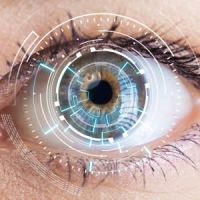Heart disease continues to be a leading cause of illness and death globally. Fast diagnosis is key to early treatment and improved rates of survival. The electrocardiogram (ECG) is a low-cost, rapid and simple test used by cardiologists and other clinicians, that is available even in the most resource-scarce settings. An ECG test can not only provide critical details about the physiological and structural condition of the heart, but can also signal the presence of systemic conditions.
Some types of heart disease can be particularly difficult for clinicians to recognise in early stages, such as asymptomatic low ejection fraction. With systolic low ejection fraction, the heart is unable to contract strongly enough with each beat to pump at least 50% of the blood from its chamber. Researchers set out to determine whether an artificial intelligence (AI) screening tool developed to detect low ejection fraction using data from an ECG could be used in routine clinical practice to improve the diagnosis of the condition. The results of their study, called the EAGLE trial (ECG AI-Guided Screening for Low Ejection Fraction) are published in Nature Reviews.
The EAGLE trial was conducted in 45 medical institutions in the US, including rural clinics, and community and academic medical centres and involved 348 primary care clinicians from 120 medical care teams. Clinicians were randomly assigned to usual care or intervention — the intervention group alerted to a positive screening result for low ejection fraction via the electronic health record (EHR), prompting them to order an echocardiogram to confirm.
During the eight month duration of the trial, 22,641 adult patients had an ECG under the care of the trial clinicians. The AI found positive results in 6% of the patients.
"The AI intervention increased the diagnosis of low ejection fraction overall by 32% relative to usual care. Among patients with a positive AI result, the relative increase of diagnosis was 43%," says Xiaoxi Yao, Ph.D., first author on the study. "To put it in absolute terms, for every 1,000 patients screened, the AI screening yielded five new diagnoses of low ejection fraction over usual care.
EAGLE is one of the first large-scale trials to demonstrate value of AI in routine practice.
"With EAGLE, the information was readily available in the EHR, and care teams could see the results and decide how to use that information," says Dr. Peter Noseworthy, a Mayo Clinic cardiac electrophysiologist and senior author on the study. "The takeaway is that we are likely to see more AI use in the practice of medicine as time goes on. It's up to us to figure how to use this in a way that improves care and health outcomes but does not overburden front-line clinicians."
Investigators in the EAGLE trial also used the findings to evaluate the top five care team users and nonusers of the AI screening information. This information, alongside feedback from clinicians will help to improve adaptation and application of AI technology in routine clinical practice, says Dr. Yao.
Rigorous testing of AI–ECG tools is necessary to demonstrate their clinical value, and further randomised clinical trials of the pragmatic implementation of the AI–ECG, such as the EAGLE trial, are currently underway.
Source: Nature
Photo: iStock
References:
Yao X, McCoy RG, Friedman PA, et al. ECG AI-Guided Screening for Low Ejection Fraction (EAGLE): Rationale and design of a pragmatic cluster randomised trial. Am Heart J. 2020;219:31-36. doi:10.1016/j.ahj.2019.10.007
Siontis, K. C., Noseworthy, P. A., Attia, Z. I., & Friedman, P. A. (2021). Artificial intelligence-enhanced electrocardiography in cardiovascular disease management. Nature reviews. Cardiology, 1–14. Advance online publication. https://doi.org/10.1038/s41569-020-00503-2
























